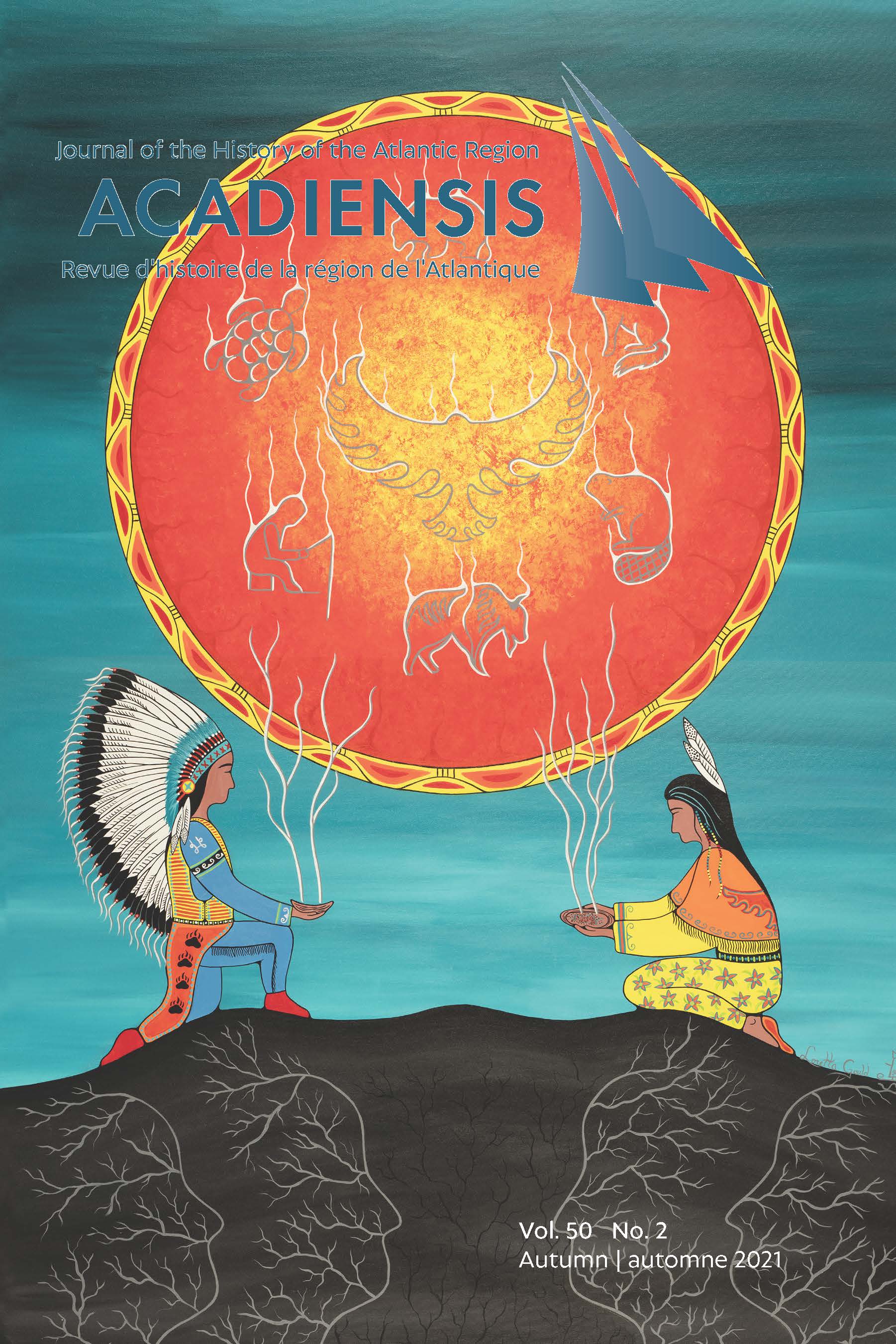Abstract
For marginalized francophone communities who left little written record in the colonial
archives, 20th-century literature confronts absences and silences resulting from imperial
archival dominance and popular narratives. This article mobilizes Acadian author Antoine-J.
Léger’s novels Elle et lui : tragique idylle du peuple acadien (1940) and Une fleur d’Acadie :
un épisode du grand dérangement (1946) to consider how Acadian writers began challenging
the stability of archival records and subverting the dominance of the version of events
imagined by Henry Wadsworth Longfellow in his poem Evangeline: A Tale of Acadie (1847).
Copyright for articles published in this journal is retained by the author(s), with Acadiensis being granted a non-exclusive licence to each and every right in the work throughout the world. After publication of the work, the author(s) shall have the right to self-archive the work and to reprint the work in whole or in part in books authored by or edited by the author(s) without the payment of any fee. In these other formats, however, the author or authors are required to acknowledge the original publication of the work in the pages of the journal. In the case of any requests to reprint the work, Acadiensis will require a standard permission fee -- to be divided equally between the journal and the author. In the event that such requests are received by the author(s), the author(s) shall direct such requests to the journal.

